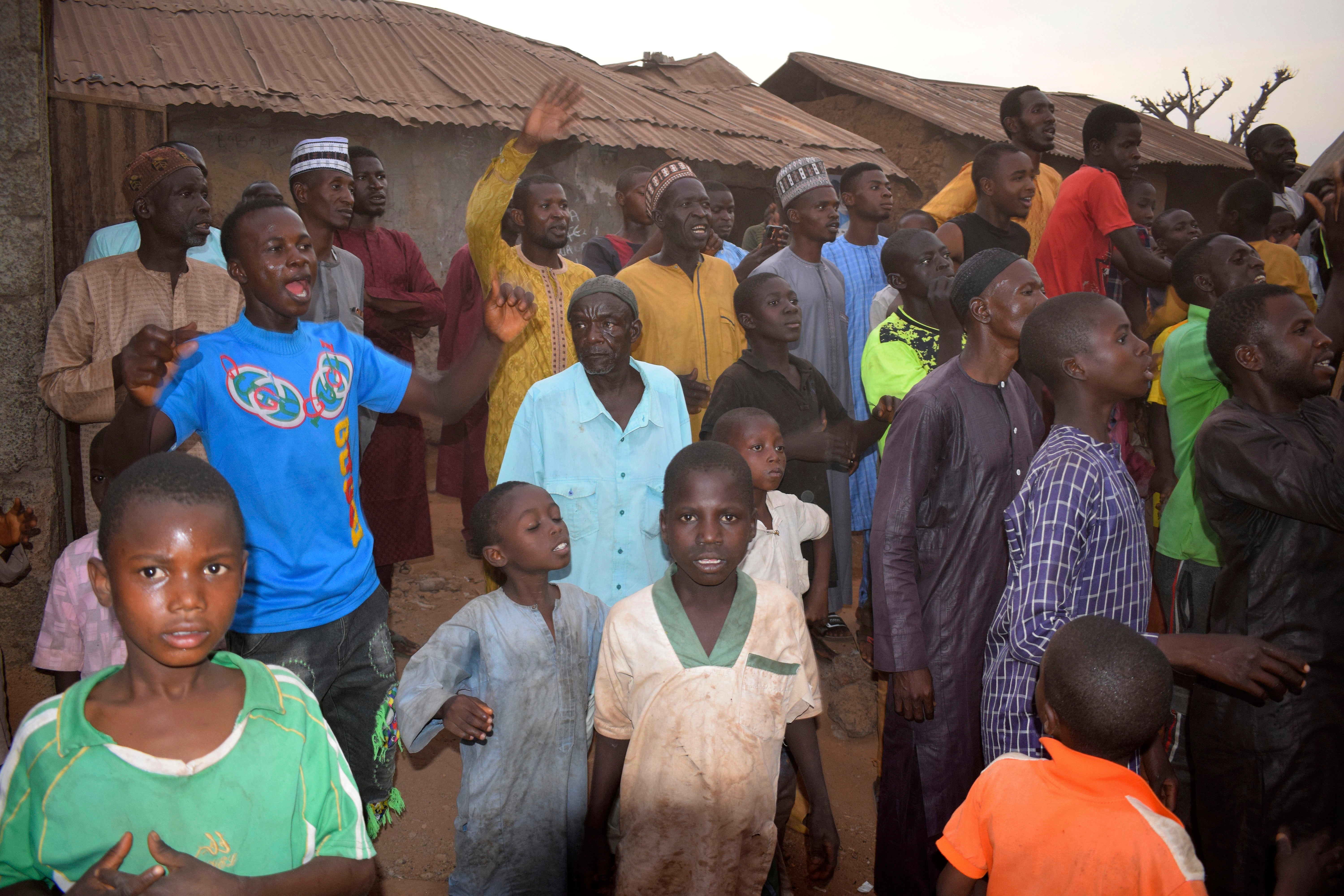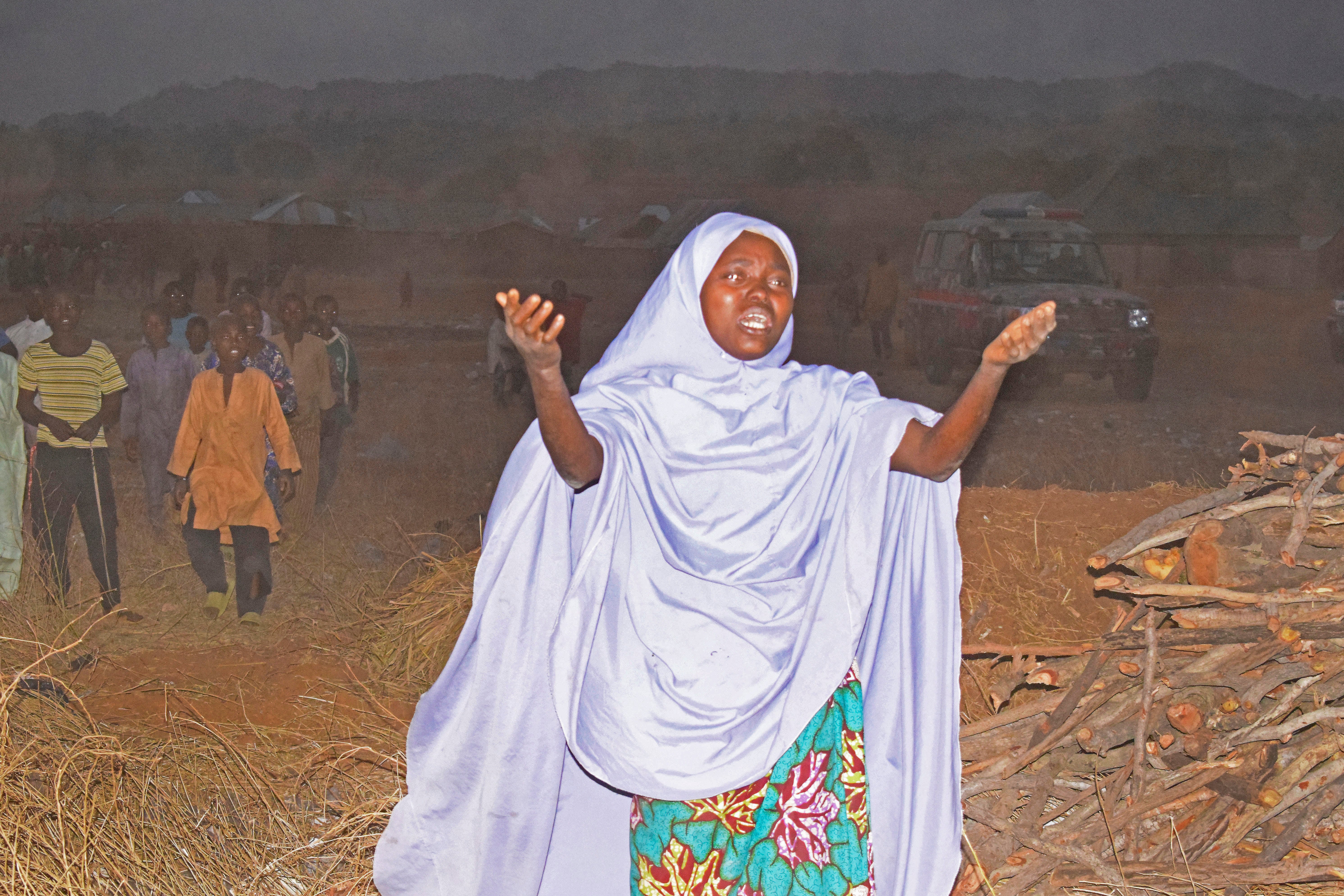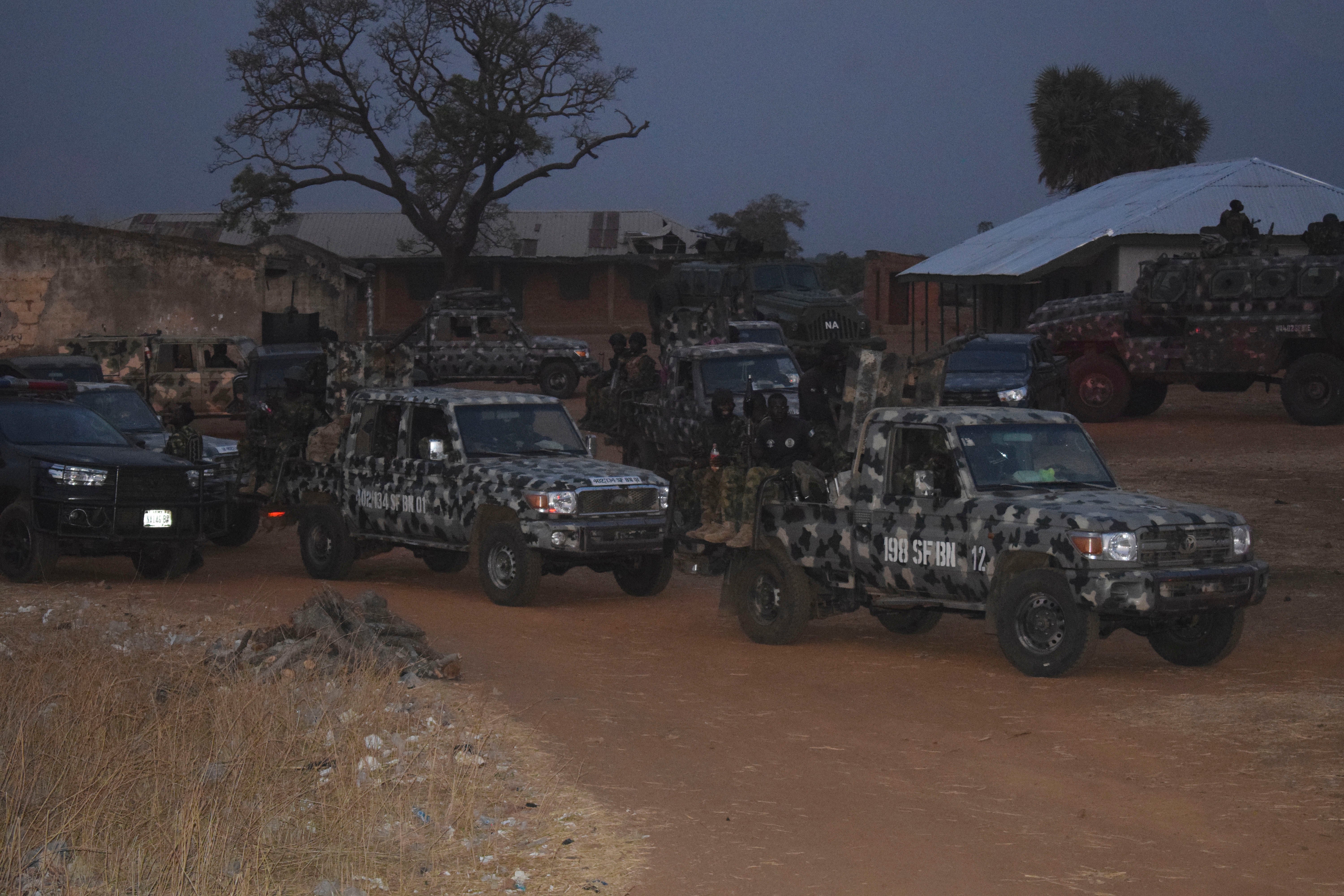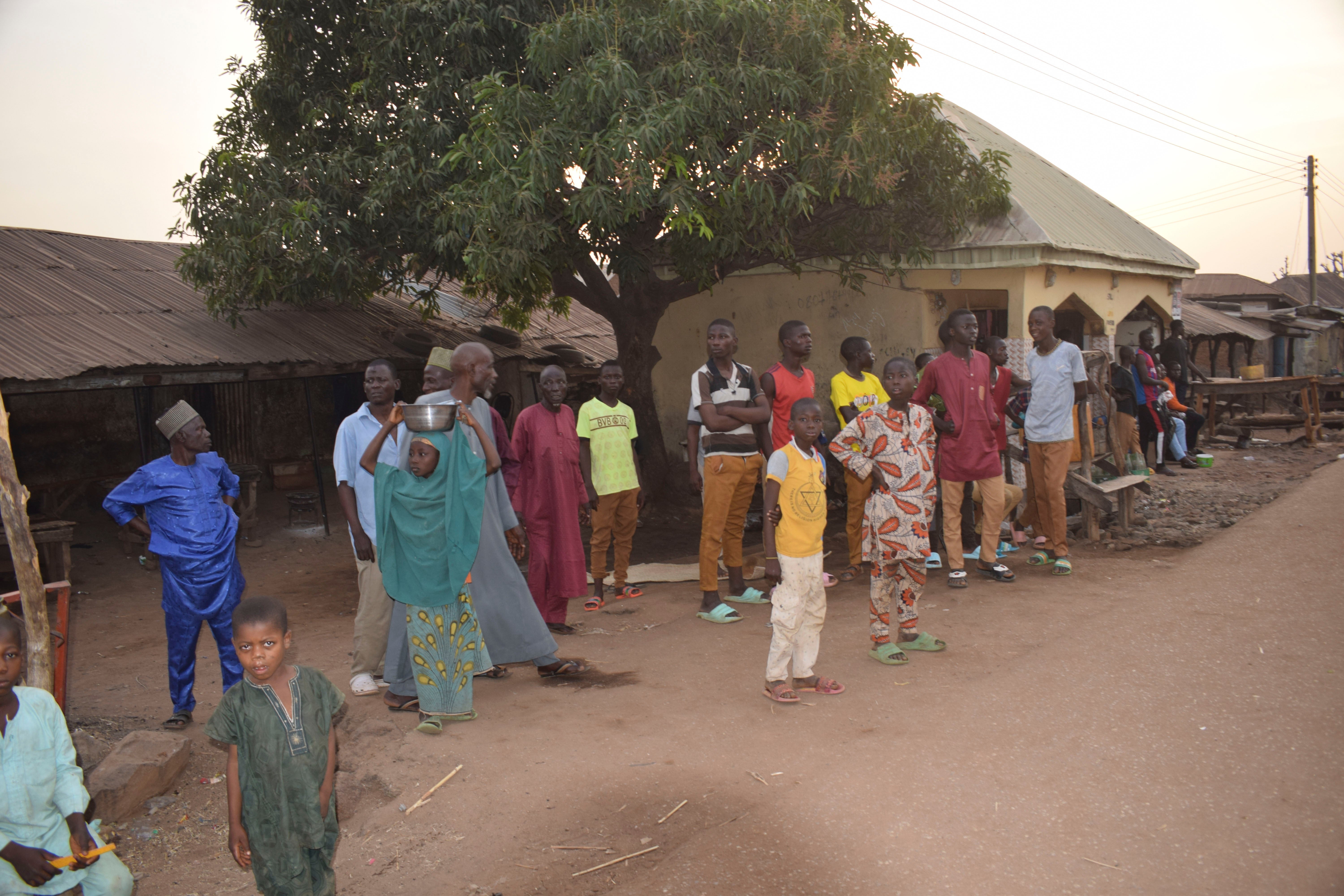More than 280 children abducted in area of Nigeria controlled by Boko Haram breakaway group
At least one pupil was shot and is receiving medical attention

Your support helps us to tell the story
From reproductive rights to climate change to Big Tech, The Independent is on the ground when the story is developing. Whether it's investigating the financials of Elon Musk's pro-Trump PAC or producing our latest documentary, 'The A Word', which shines a light on the American women fighting for reproductive rights, we know how important it is to parse out the facts from the messaging.
At such a critical moment in US history, we need reporters on the ground. Your donation allows us to keep sending journalists to speak to both sides of the story.
The Independent is trusted by Americans across the entire political spectrum. And unlike many other quality news outlets, we choose not to lock Americans out of our reporting and analysis with paywalls. We believe quality journalism should be available to everyone, paid for by those who can afford it.
Your support makes all the difference.Suspected Islamist extremists have abducted more than 280 children in the north-western town of Kuriga in Nigeria.
While authorities initially said more than 100 students were taken hostage, the school headteacher told Kaduna governor Uba Sani that the headcount of those missing has reached 287.
This is the second mass abduction in the West African nation in less than a week. “We will ensure that every child will come back. We are working with the security agencies,” the governor was quoted as saying by the Guardian.
Gunmen attacked the school when the pupils were in the assembly ground for morning prayers at around 8.30am local time. According to eyewitness, one of the students was shot by the gunmen and is receiving treatment in Birnin Gwari hospital.
“The government is trying everything possible with the security agencies to see how we can rescue them,” said Musa, chairman of the local council.
The incident comes days after Islamist extremists abducted at least 200 people who were out searching for firewood, mostly women and children displaced by violence in northeastern Nigeria.
Officials do not believe the two cases are not related. Locals blamed the earlier incident on extremist rebels from Boko Haram, who launched an insurgency in Borno in 2009 seeking to establish their radical interpretation of Islamic law in the region.
Thursday’s attack, meanwhile, occurred in an area controlled by a breakaway faction of Boko Haram.

Many of those fleeing Boko Haram’s deadly violence are in displacement camps with limited aid, often risking their lives to go to areas with inadequate security presence in search of food and firewood.
The victims of the latest attack had left several displacement camps in Borno state’s Gamboru Ngala council area when they were ambushed near the border with Chad and taken hostage, the UN said late on Wednesday. The incident occurred several days ago but details are only emerging now because of limited access to information in the area.

"The exact number of people abducted remains unknown but is estimated at over 200 people," the UN humanitarian coordinator for Nigeria Mohamed Fall said in a statement, adding that some of the victims were later released.
The attack is a "stark reminder" that women and girls are worst hit by the conflict, Fall said as he called for the immediate release of the victims. "This act of violence against already traumatised citizens offends our common humanity," he said.

At least 35,000 people have been killed and more than two million displaced due to violence by Boko Haram group and a breakaway faction backed by the Islamic State group.
Nigerian security forces fighting the insurgents are overstretched as they also battle dozens of armed groups attacking remote communities in other parts of the northern region. The crises have added to pressures on Nigeria’s president Bola Tinubu, who was elected last year after promising to end the violence.
Additional reporting by agencies
Join our commenting forum
Join thought-provoking conversations, follow other Independent readers and see their replies
Comments